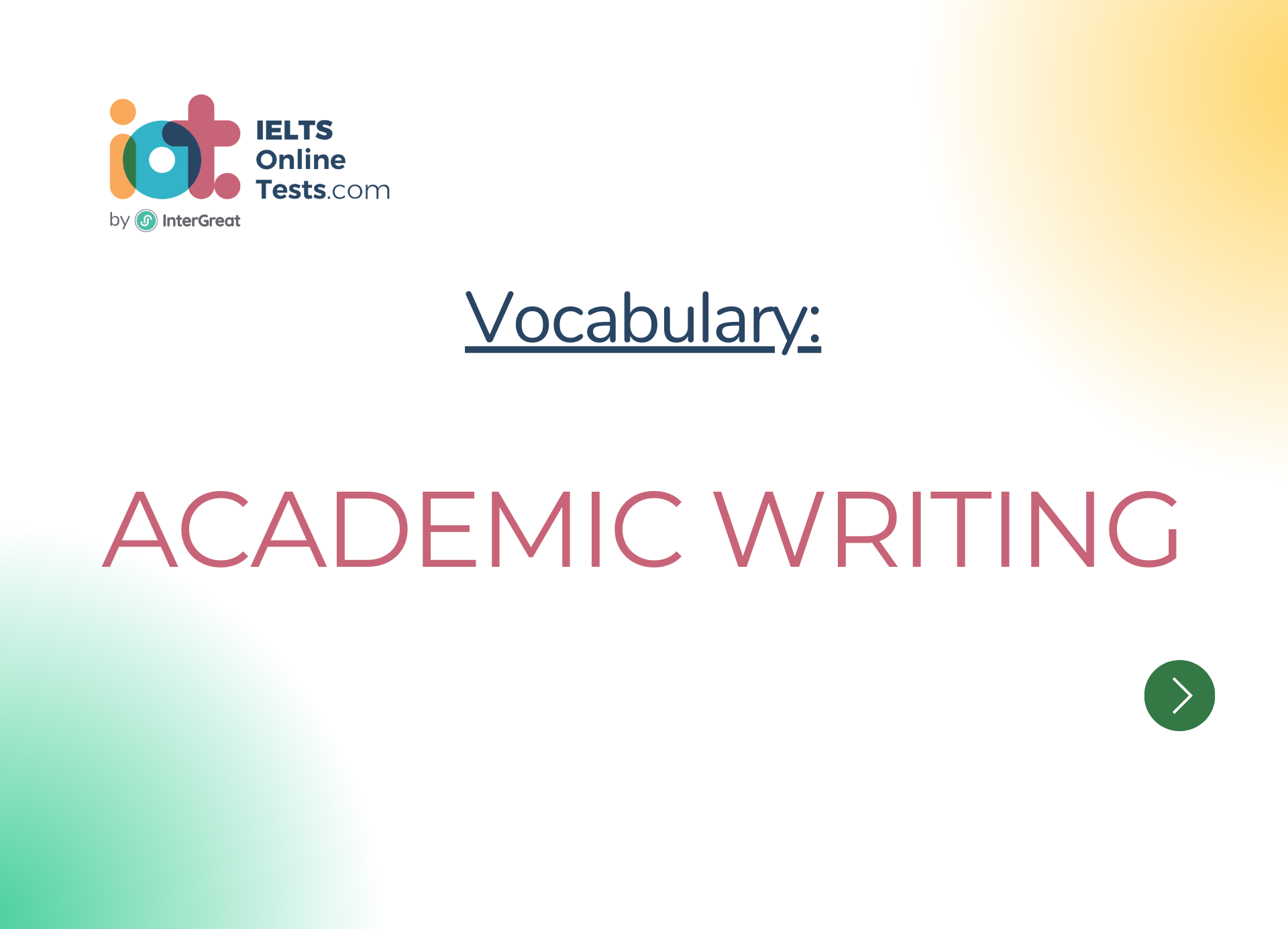
Academic writing
Here's a detailed vocabulary list related to academic writing for the IELTS band score range of 4.5-6.0:
I. Introduction
Introduce: To present or begin a piece of writing.
Thesis statement: A clear and concise statement that expresses the main argument or purpose of the essay.
Background information: Supporting details or context relevant to the topic.
Outline: A plan or structure for the essay.
II. Body Paragraphs
Topic sentence: The main idea or point of a paragraph.
Supporting evidence: Facts, examples, or data that support the topic sentence.
Analysis: In-depth examination or interpretation of the evidence.
Citation: Quoting or referencing a source to support an argument.
Counterargument: Presenting an opposing viewpoint.
III. Cohesion and Coherence
Cohesion: The clear and logical connections between sentences and paragraphs.
Transition words: Words and phrases that link ideas and create smooth transitions.
Rephrasing: Expressing the same idea in a different way.
Synonyms: Words with similar meanings used to avoid repetition.
Pronouns: Words that replace nouns to avoid redundancy.
IV.Academic Vocabulary
Academic: Relating to education and scholarship.
Terminology: Specific words or phrases used in a particular field.
Jargon: Specialized language used by professionals in a specific field.
Formal language: Polite and proper language suitable for academic writing.
V. Conclusion
Summarize: To briefly restate the main points of the essay.
Conclude: To bring the essay to an end.
Closing statement: A final thought or reflection on the topic.
Implication: The potential consequences or impact of the essay's findings.
VI. Citation and Referencing
Citation style: The specific format for citing sources (e.g., APA, MLA, Harvard).
Bibliography: A list of sources used in the essay.
Plagiarism: Using someone else's work without proper attribution.
VII. Academic Integrity
Academic integrity: The ethical principles of honesty and responsibility in academic writing.
Originality: Producing work that is unique and not copied from others.
Paraphrasing: Rewriting someone else's ideas in your own words while giving proper credit.
VIII. Persuasive Language
Convincing: Making a strong argument or presenting compelling evidence.
Rhetorical devices: Techniques used to persuade or manipulate the audience (e.g., repetition, rhetorical questions).
Emphasize: To give importance or focus to a particular point.
IX. Descriptive Language
Adjectives: Words used to describe nouns and add details to the writing.
Vivid: Creating a clear and lively image in the reader's mind.
Evocative: Provoking strong emotions or memories.
X. Organization
Logical order: Arranging ideas in a sequence that makes sense to the reader.
Chronological: Organizing information in order of time.
Cause and effect: Explaining the relationship between actions and their consequences.
Compare and contrast: Pointing out similarities and differences between two or more things.
Remember to practice using these vocabulary words in your writing to improve your academic writing skills. Pay attention to coherence, clarity, and using appropriate academic language. Good luck with your IELTS preparation!




